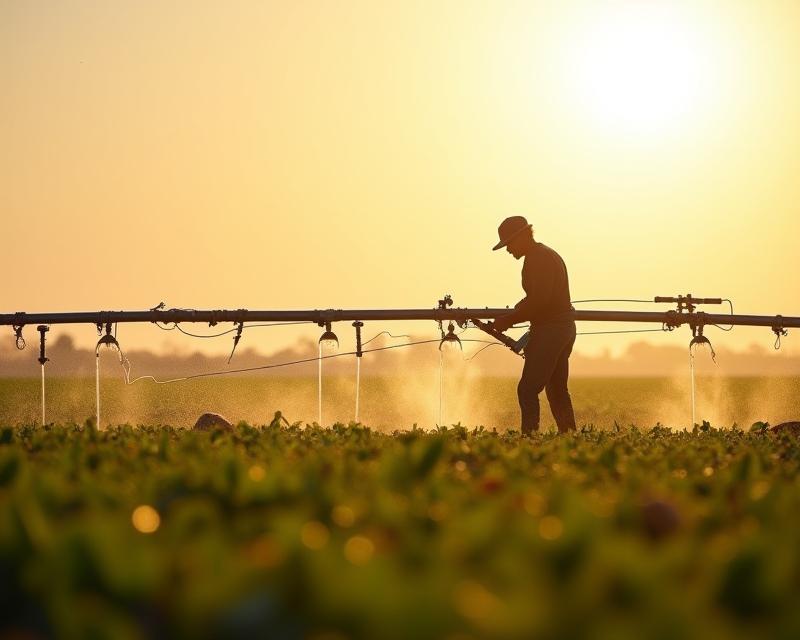Water: Farming's Future & Your Bottom Line
Publish in Sustainable Farming el 05/07/2025 20:46
Water: Farming's Future & Your Bottom Line
Water. It's the lifeblood of any farm, garden, or ranch. But increasingly, it's also a major concern. Understanding the social and economic implications of water management is crucial for the long-term health of your operation and the communities you're a part of. It's not just about having enough water; it's about using it wisely and sustainably.

The Economic Impact
Water scarcity directly impacts your farm's profitability. Higher water costs, restrictions on usage, and potential crop losses due to drought can significantly reduce your income. Think about it: irrigation is a major expense. If water becomes less available or more expensive, your profit margins shrink. Furthermore, regulations around water usage can require investments in new technologies, like more efficient irrigation systems, which represent a significant upfront cost. Ignoring water management can lead to financial instability and even threaten the viability of your farm.
Social Considerations & Community Impact
Water isn't just an economic resource; it's a social one. Farmers are often deeply connected to their local communities, and responsible water management is vital for maintaining those relationships. Over-extraction of water can impact downstream users – other farms, municipalities, and ecosystems. This can lead to conflicts and resentment. Sustainable practices, like water conservation and responsible irrigation, demonstrate respect for neighbors and contribute to a healthy, thriving community. Moreover, the health of our waterways directly affects recreational opportunities and the overall quality of life for everyone.
Smart Water Management: A Path Forward
So, what can you do? Implementing smart water management strategies is key. This includes exploring efficient irrigation techniques like drip irrigation and micro-sprinklers, which deliver water directly to plant roots, minimizing waste. Rainwater harvesting is another excellent option, capturing and storing rainwater for later use. Soil health plays a huge role too – healthy soil retains water better, reducing the need for frequent irrigation. Finally, staying informed about local water regulations and participating in water conservation initiatives can help ensure a sustainable future for your farm and your community. Consider soil testing to understand your soil's water holding capacity. Small changes can make a big difference!





